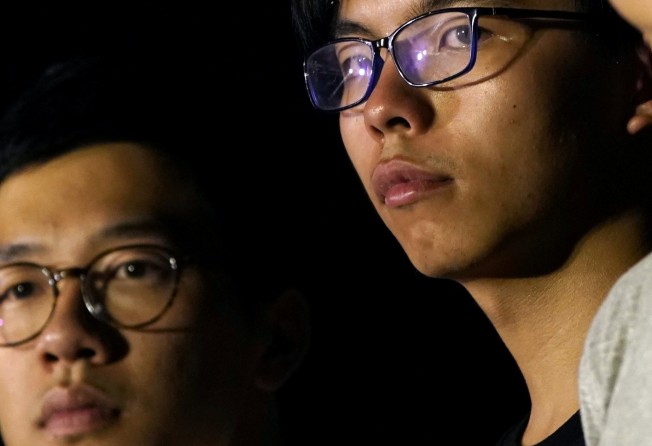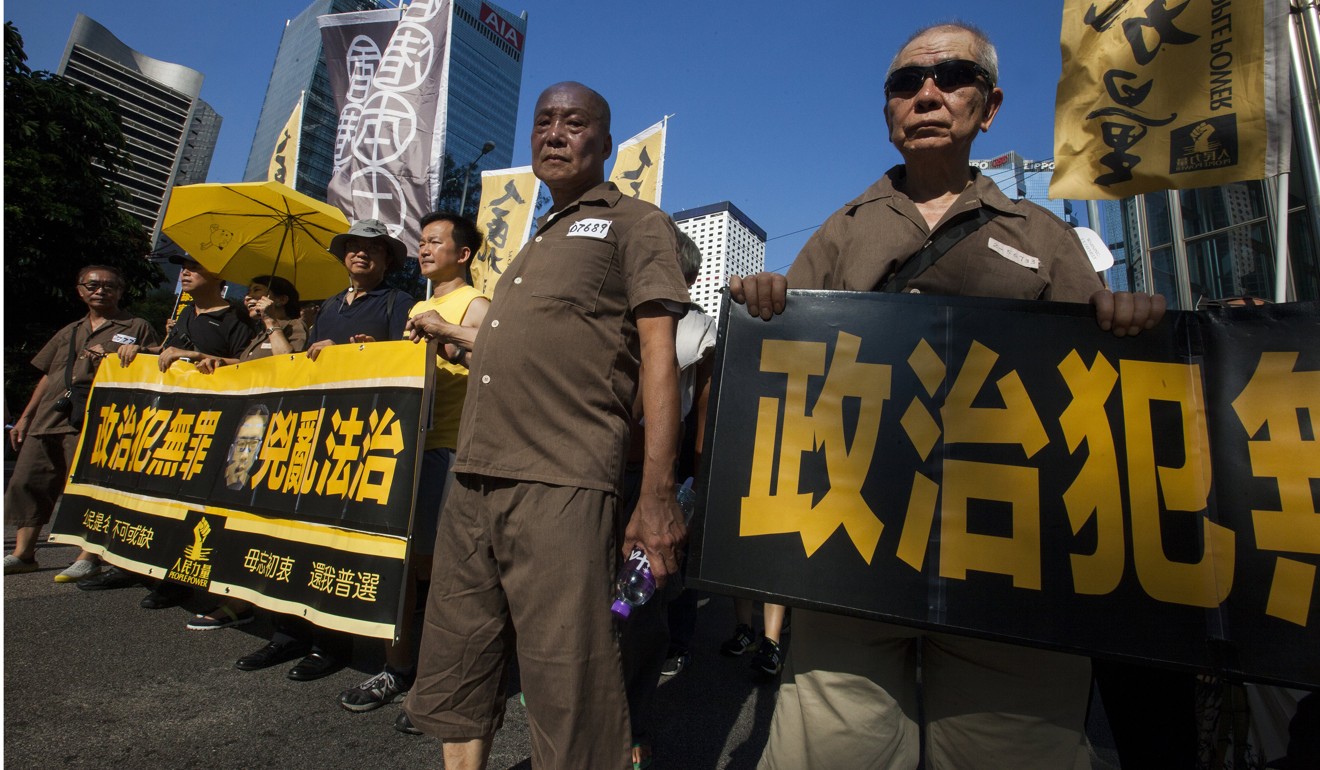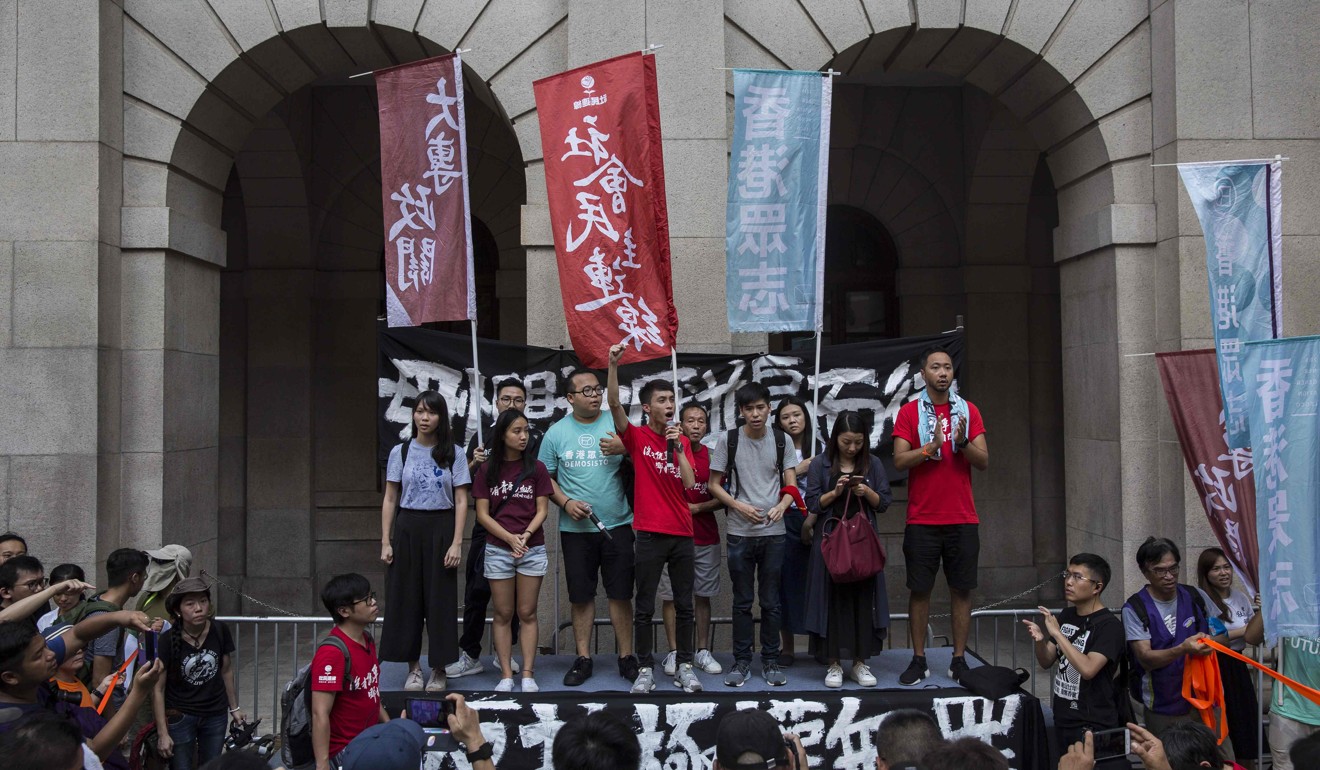Sympathy for jailed activists does not justify slurs on Hong Kong judiciary
Ronny Tong says while it is understandable that some people are unhappy with the court order of custodial sentences, the unproven accusations of bogus charges and political persecution must not be allowed to stand

On the lips of many people in Hong Kong is the question: are we witnessing the devaluation of the Nobel Prize and the truth? The reason for this seemingly absurd question is a recent commentary in The New York Times, accusing the Hong Kong judiciary of sentencing three student leaders to jail, varying from six to eight months, on what the author called “bogus charges”.
She was referring to an incident where the defendants, after participating in a lawful rally, decided to rush security personnel, scale a fence, and storm and occupy a fenced-off square in front of the government offices. They also called on a large number of other people present to do the same. In the process, 10 security officers were injured. The commentator went on to suggest that the defendants should therefore be nominated for the Nobel Peace Prize.
The accusation of “bogus charges” cannot be further from the truth. At least everyone in Hong Kong, including the defendants themselves, knows it to be false. The incident was captured on camera by the media and, in any event, footage is widely available on the internet. Even the defendants eventually did not proceed with appealing against their conviction and accepted that they were guilty of an offence. The only dispute was over the nature and length of the sentences that could be appropriately imposed.
Watch: Joshua Wong rallies students to ‘retake’ Civic Square
Nor is there any truth in the suggestion that, in reviewing the sentences of the defendants imposed earlier by the magistrate, there was something in the nature of “political persecution”. In a carefully written judgment, the Court of Appeal found no less than five serious errors on the part of the magistrate in her judgment. Each proposition relied on by the Court of Appeal was carefully considered and supported by a generous wealth of leading recent English and Hong Kong authorities.
The rule of law is the singularly most precious core value we have in Hong Kong
Plainly, there was nothing political about the Court of Appeal’s judgment. Quite the contrary; were the Secretary for Justice or the Court of Appeal to ignore these serious errors in law and refuse to intervene by reason of the defendants’ political background, both the secretary and the court would be failing in their duty and doing a serious disservice to the rule of law in Hong Kong. The scale of justice knows no favour of any political persuasion.
Nor is there any truth in the further suggestion that the Hong Kong government or the court is trying to restrict the freedoms of Hong Kong residents. Right at the outset, in the second paragraph of his judgment, the vice-president of the Court of Appeal affirmed that Hong Kong residents “enjoy the freedoms of assembly, speech, procession, demonstration and expression of opinions” under the Basic Law. These “basic freedoms” are “comprehensive and in no way lesser than the freedoms enjoyed by the people of other advanced and free societies”.
However, these freedoms are not absolute but are “subject to the supervision of the law”. “Hong Kong residents are obliged to observe the laws that are in force in Hong Kong, and the exercise of the rights conferred by law is by no means a reason or excuse for doing illegal acts,” he wrote.

Indeed, the very fact that on the Sunday following the judgment, some 20,000 people marched in the streets in protest against the sentences imposed by the Court of Appeal – without any incident or arrest – is the best testimony that freedoms in Hong Kong remain alive and well. Since then, there have been other large-scale protests and marches for different causes and none resulted in any incident or arrest.
While those who openly accused our judges of being in the pocket of Beijing arguably could be found guilty of criminal contempt, no prosecution has been brought so far.
I fully understand why people sharing the political beliefs of the defendants or who are sympathetic to them are unhappy with the court’s decision. After all, three very promising student leaders with a considerable following were sent to jail, albeit for relatively short periods. One cannot but lament the unfortunate consequences which have to be borne by our young in breaching the law. There is nothing unusual about such sentiments; I dare say you might find similar feelings in other parts of the world, were the same to happen there. Nevertheless, that is not a good reason for ignoring the truth or accusing our court of corrupt or despicable conduct without facts.

I can also understand why some people – well-educated people in positions of some influence – want to see the failure of Hong Kong under “one country, two systems”, who may even be willing to succumb to low tactics to smear our judicial system. But what good will it do anyone? The failure of “one country, two systems” will not bring about a new and better political order, only a “one country, one system” under China. Would there be more freedoms then? I doubt it.
The rule of law is the singularly most precious core value we have in Hong Kong. Unfortunately, it is also the most fragile. The very existence of the rule of law relies almost entirely on the perceptions of the people. It is easy to strike it down with a stroke of the pen but it will take years to build it back up again. Let’s not waste it for the sake of divisive politics and sensationalism in propaganda.
Ronny Tong Ka-wah, QC, SC, a former Bar Association chairman, is a member of the Executive Council and convenor of the Path of Democracy